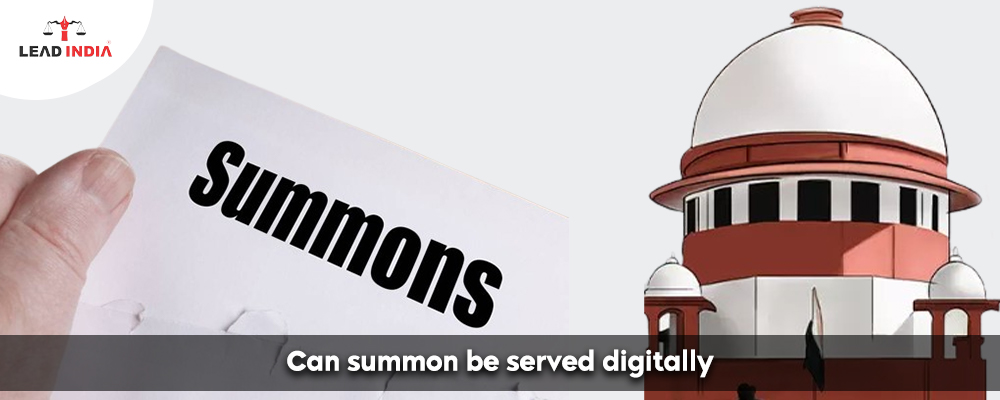As the world is moving towards digitalization, courts, and our judiciary are also opting for digital ways. There is a new concept of digital summon has been adopted. The summon can be served digitally via an email or WhatsApp. It is much more convenient and faster than the traditional way of summoning a person. Even in the digital summon there are fewer chances of delay. There are less chances that the person has forgotten to serve the summons. Even, there are less chances that the person does not receive the summon.
The covid – 19 has many bad impacts but it has many good ones as well. The court has moved towards digitalization during the COVID period. The court even started online hearing of the cases.
Need A Legal Advice
The internet is not a lawyer and neither are you. Talk to a real lawyer about your legal issue

Can summon be served digitally
In the case of Sporta Technologies Pvt. Ltd. Vs John Doe, 2023 which is also called as Dream 11 case, the Delhi High Court allowed the plaintiff to serve the summons through email and mobile numbers. The court held that the court should utilize modern methods of communication and said that there is a need to adapt to the digital age. This decision of the Delhi High Court is based on the court’s practical approach and it is helpful in such cases where the defendants exploit the veils of domain names for violating activities.
The The Hon’ble Supreme Court, in the context of extending the limitation period [Suo Moto (C) No. 3 of 2020], has noted and determined that notices, summons, and exchanges of pleadings can be served via email, fax, and widely used instant messaging platforms like WhatsApp, Telegram, and Signal. The Court stated that the two blue ticks after sending the notice and summon will be deemed as if the recipient has seen the document under the Indian Evidence Act. This is a huge step towards digitalization.
The CJI even expressed concern over the WhatsApp feature in which the person can turn off their blue tick. In such a situation, the summon can be served via fax or email. The CJI said that considerations for serving summons depends upon case to case whether the summon has been served or not.
Legal Implications
- Convenience: This way of serving summons is convenient. This facilitates the access to justice and ensures that the legal proceedings should not be impeded by any excuses of defendants.
- Technological obstacles: Although this way of giving summons is convenient there should be technological availability and accessibility. The court should ensure that the means are reliable and should issue guidelines on how to serve summons through these means.
- Privacy: This way of serving summons raises concerns regarding data protection and privacy. The court must make ways to protect the personal information of parties. The court must handle sensitive data securely.
- International standards: The serving of summons in different jurisdictions requires cross-border implications. This situation arises when the defendant is situated in a different jurisdiction. The court should comply with international standards for service of summon and ensure that the procedure is legally sound.
Types of summons
- Civil summons: This type of summon is served by one individual on another individual. It is given to inform the other person that the person has to appear in court as the civil action has been taken up against him
- Court summon – A notice from the court asking you to come to court is called a “Court summons.”
- Criminal summon: It is a type of summon given in criminal proceedings informing the person to appear in court.
- Administrative summon: It is a type of summon that the regulatory authority gives so that they can deal with a particular type of investigation or any other legitimate issues.
Additionally, a citation, traffic violation ticket, or notice to appear is a form of summons that is prepared and served by a law enforcement official at the scene of the incident.
Lead India offers free legal advice, digital information, and other legal assistance. We offer a forum where you may talk with a lawyer and ask legal questions. Lead India’s lawyers are here to assist you with any legal issues. Lead India’s attorneys are available to help you with any legal matters. Lead India not only offers online legal support, but it also enables users to ask free specialized questions.





 Talk to a Lawyer
Talk to a Lawyer